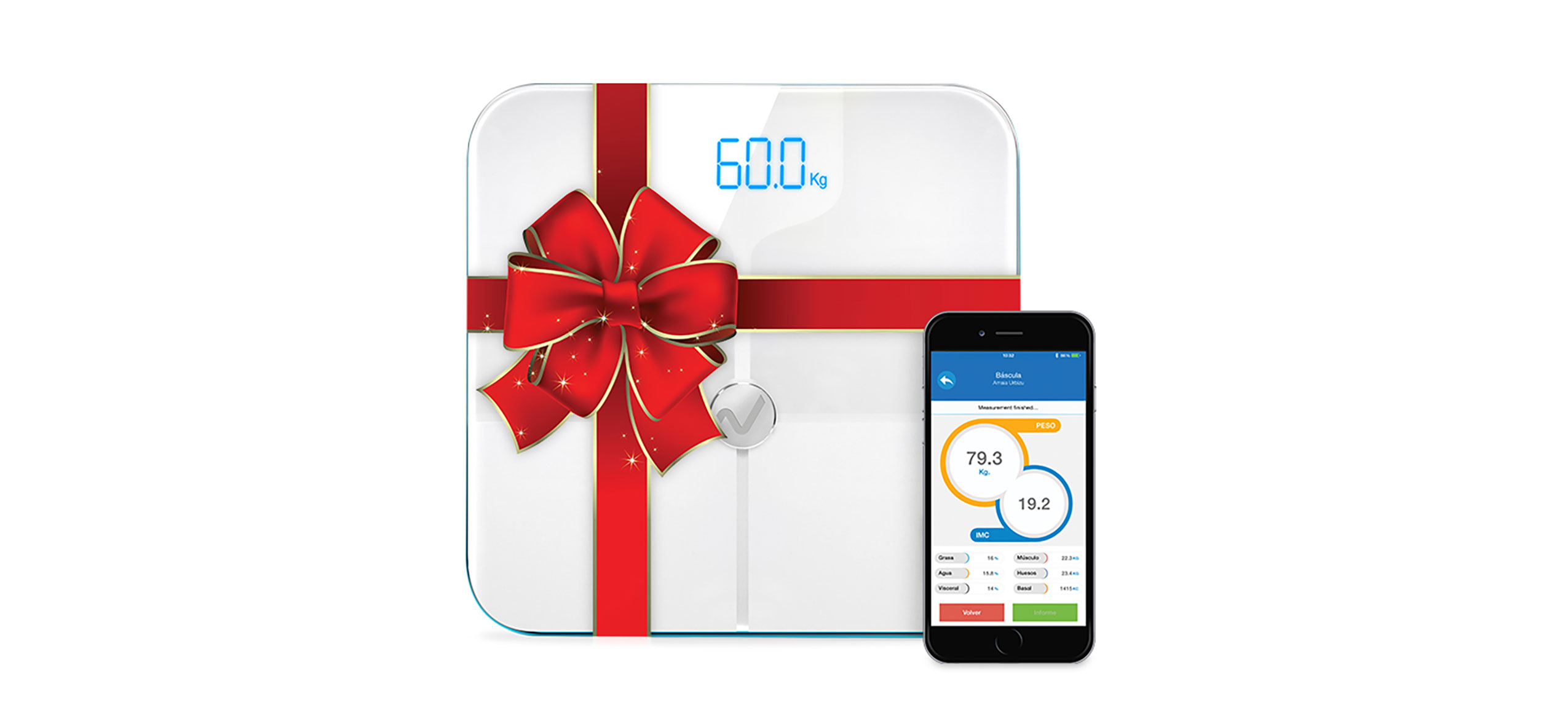Watch your weight during Christmas

Looking after yourself during the holidays is easy with the IvyHealth body fat scale. The perfect gift for your loved ones and yourself, it will allow you to keep track and control your weight throughout the festive period. You will have detailed results of all your different body composition values and be able to compare these to your pre-Christmas self, motivating you to kick off 2017 on the right track!
Several studies have shown that during this period, we put on an average of 2 to 5 kilogrammes. The increase in weight at Christmas depends on a variety of factors. On the one hand is gender. Men tend to put on more weight than women because of large helpings and an excess of alcohol. Another determining factor is physical activity, which, if scarce throughout the year, it is practically non-existent during this season.
In addition, Christmas cannot be considered a healthy time for the heart as it usually causes an increase in: blood pressure, uric acid, blood sugar and cholesterol levels. This is due to the excesses made, the quantity of food, the type of food, alcohol abuse, etc.
A typical lunch provides somewhere between 700 and 900 Kcal and a normal supper accounts for between 500 and 700 Kcal; however, a Christmas lunch or dinner can triple this energy input, reaching and, in some cases, going above 2,500 Kcal.
This is why one of the most common resolutions at the start of the new year is to lose the kilos gained during the festive season and get back into shape. Miracle diets are not recommended. Even though, when you follow them, you lose weight quickly, they are very strict and limiting and can give rise to the famous yo-yo effect. Therefore, we advise you to follow a varied diet to avoid nutritional imbalance and follow it up with sports.
Here is some advice:
- Have between 4 or 5 meals a day. Don’t skip any meal and don’t eat less, just better. A diet’s energy input must match each person’s energy consumption, taking into account the physical exercise done. The diet followed must guarantee a proper intake of macronutrients and micronutrients.
- On no account should you skip breakfast. Breakfast helps you control your weight and stops you from eating unhealthy food over the course of the morning. A complete breakfast is one that includes a dairy product, cereals and fruit.
- Have a total of 5 portions of fruit and vegetables. You can include 2 portions of vegetables (e.g.: a plate of vegetables at lunchtime and salad in the evening) and 3 pieces of fruit, one at breakfast time and the remaining two as dessert, a mid-morning or afternoon snack.
- Eat carbohydrates. When you want to lose weight, you tend to reduce the quantity of this macronutrient. This is not right. Carbohydrates should provide between 50 and 55% of the energy consumed throughout the day. The important thing to do is to reduce your intake of sugar to less than 10% of total energy. In summary, you are advised to increase your intake of complex carbohydrates like bread, pulses, rice, pasta, etc. Avoid biscuits, store bought juices, sugary drinks, table sugar…
- Eat more fish. Try to have 3 portions a week and have at least one portion of oily fish. Its high content in omega 3 fatty acids will provide you with a cardio-friendly fat type.
- Choose a way of cooking that requires very little fat. Avoid fried foods, foods in batter and breaded foods. Griddling, steaming, roasting or cooking foods in papillote is preferable.
- Do physical exercise. Start with something simple and make it gradually more complicated. Walk to work, walk up and down stairs and avoid the lift. A good goal would be to reach 10,000 steps a day!
- The beverage of choice should be water. Have between 1.5 and 2 litres a day.
So before you get back to your usual routine, you need to eliminate these excesses and should do at least 30 minutes of physical activity a day. You will lose these kilos sooner.
This article was originally published on IvyHealth’s blog.







